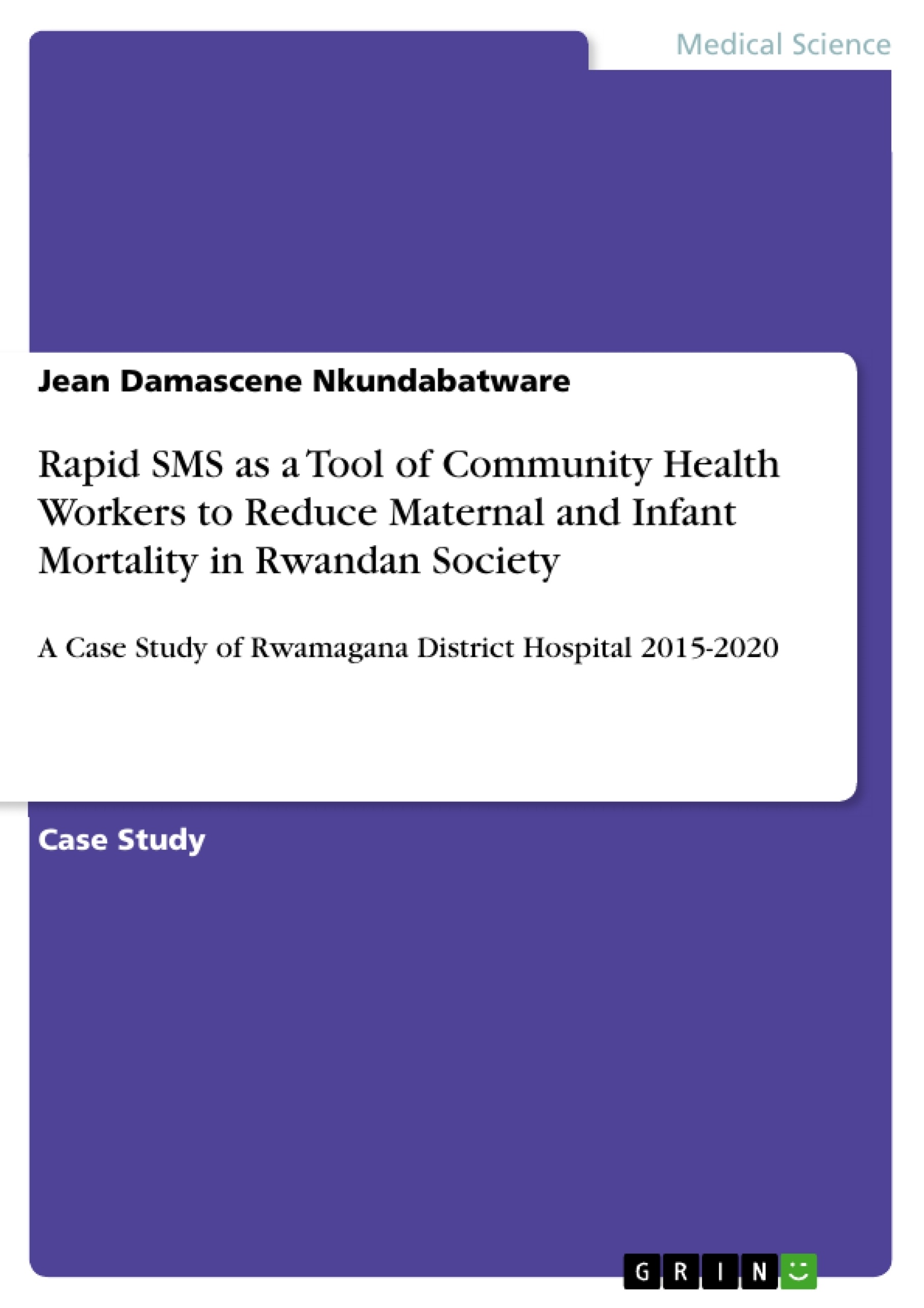The study focuses on the roles of cellular phone "Rapid SMS" used by CHWs in reducing maternal and infant mortality in Rwanda and if the reduction of maternal and infant mortality is due to the cellular phones “SMS” used by CHWs in Rwanda. The Rwandan CHWs are an important component of health services; they are the strength of the health system and avoid the population to take long walks to the nearest health centers. The CHWs are used in preventing of maternal infant deaths by using the rapid SMS.
As methodology the study used analytical, synthetic, statistical, comparative and historical methods. As techniques, the interview, questionnaire and documentation techniques were used.
Table of Contents
- ABSTRACT
- INTRODUCTION
- MAIN BODY
- BACKGROUND OF STUDY
- PROBLEM STATEMENT
- RAPID SMS DATA FLOW
- METHODOLOGY
- FINDINGS
- CONCLUSION
- BIBLIOGRAPHY
Objectives and Key Themes
This study aims to investigate the impact of cellular phone "Rapid SMS" utilized by Community Health Workers (CHWs) in reducing maternal and infant mortality rates in Rwanda, focusing on Rwamagana District Hospital from 2015 to 2020. The study explores the role of the Rapid SMS system in improving access to healthcare, particularly for pregnant women and newborns in remote areas.
- The role of CHWs in maternal and infant health in Rwanda
- The effectiveness of the Rapid SMS system in facilitating communication and healthcare access
- The impact of the Rapid SMS system on maternal and infant mortality rates
- The challenges and opportunities associated with utilizing technology for healthcare delivery in developing countries
- The significance of community-based interventions in improving health outcomes
Chapter Summaries
- Introduction: This chapter provides a brief overview of the Rwandan CHW program and the importance of utilizing the Rapid SMS system for preventing maternal and infant deaths. It highlights the challenges associated with accessing healthcare in remote areas and the need for innovative solutions.
- Background of Study: This chapter explores the global context of maternal and infant mortality, focusing on the complexities of this issue and the challenges faced by developing countries. It emphasizes the importance of addressing both direct and indirect factors contributing to these deaths.
- Problem Statement: This chapter delves into the specific problem of high maternal and infant mortality rates in Rwanda, highlighting the disparities between developed and developing countries. It emphasizes the need for interventions that target the most vulnerable populations.
Keywords
The study focuses on the impact of cellular phone "Rapid SMS" utilized by Community Health Workers (CHWs) in reducing maternal and infant mortality in Rwanda. Key terms include maternal mortality, infant mortality, community health workers, rapid SMS, healthcare access, technology, and developing countries. The research explores the effectiveness of this technology-based intervention in improving health outcomes and addresses the challenges and opportunities associated with its implementation.
- Quote paper
- Jean Damascene Nkundabatware (Author), 2021, Rapid SMS as a Tool of Community Health Workers to Reduce Maternal and Infant Mortality in Rwandan Society, Munich, GRIN Verlag, https://www.grin.com/document/1061226




